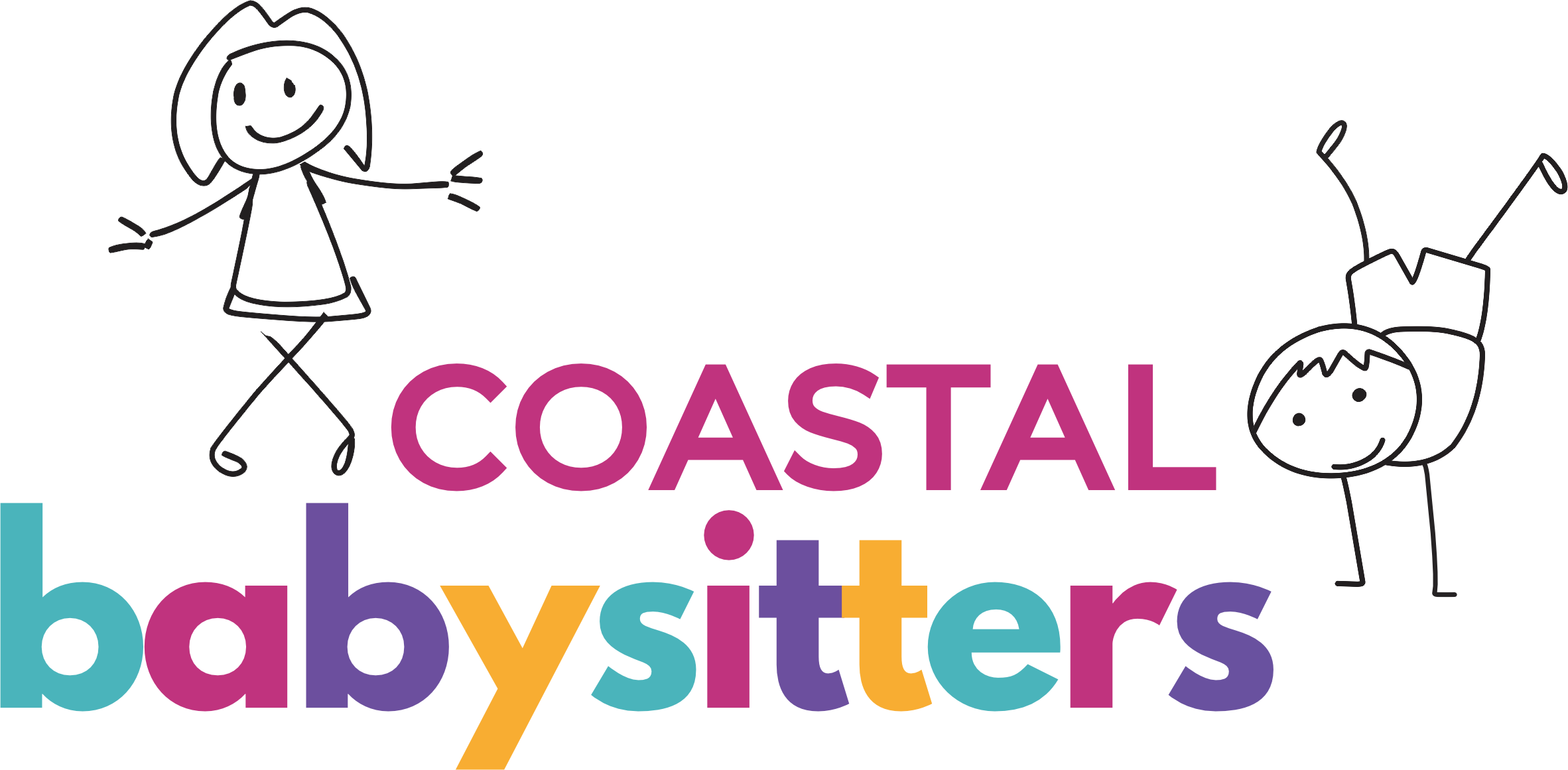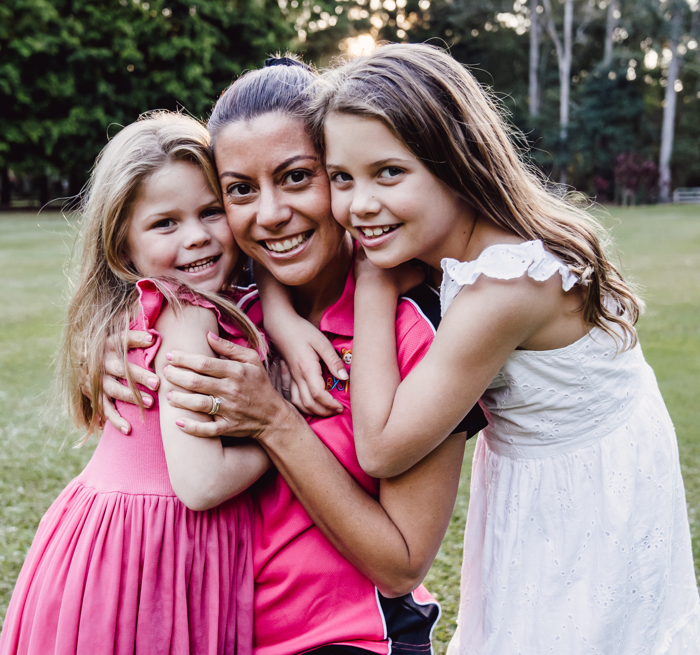The Importance of a Great Bedtime Routine
by Deb Hepplewhite, Infant and Child Sleep Consultant at Baby Slumberland 
My Name is Deb and I am a Certified Infant + Child Sleep Consultant and I am a Mum myself to two boys aged 3 and 4. I connected with Orly from Coastal Babysitters about writing a guest blog piece to provide some information to her followers on infant and child sleep. Now, the information that I could give you on this topic could keep you reading for some time, so I have chosen one of the most important elements to help with your child’s sleep, which is the importance of a great bedtime routine. I hope you enjoy reading the piece and that you are able to take this information and adapt it within your own household.
Having a great consistent bedtime routine can help set the tone for great consolidated night-time sleep for your child. Each element within a bedtime routine will help relax your child for bed and gradually prepare them for sleep. In this post, I will go through each element of the bedtime routine, and why they are effective in each individual way.
Timing is probably the most important part of a bedtime routine, the time in which your child goes to bed can make it so much easier for them to fall asleep or conversely if the timing isn’t quite right, it can make it quite difficult for them to settle. Naturally through our Circadian Rhythm babies and children have a melatonin rise which starts to happen at 6-7pm in the evening. Melatonin is the sleep hormone responsible for helping us get to sleep initially and then also get us into a restful and deep sleep. If we can aim to have our children in bed around 6-7pm you can catch this Melatonin ‘wave’ and it will make it so much easier for your babe to fall asleep.
If we miss this melatonin wave and your child goes into the realm of overtiredness then several things happen that make it really difficult for them to fall asleep. Cortisol levels rise, their adrenals glads will be high functioning and their sensory system will be overloaded and they will seem very ‘hyper’. Once in this state, it makes it really difficult for them to switch off and get into a relaxed state for sleep to take over. There will be crying, they will seem unsettled, fidgety and they will often wake very upset between the hours of 6pm and 11pm. That is why timing is so important and if you can pop your child to bed before they have reached this overtired state, it will be much easier for them to settle initially and also get into a deep sleep.
What time your child has dinner can help your timing or it can also make things a little harder. Making sure you give your child dinner at an appropriate time that also gives you plenty of space to have a nice relaxing bath is essential, ideally you don’t want that time to be rushed or hectic.
The reason why we give a bath is to simulate the natural core body temperature drop that happens right before you go to sleep. This happens naturally within your body at the onset of sleep, so by giving a bath just before bedtime, this will help encourage this and simulate the effect it has at the onset of sleep.
Once your child has had a lovely relaxing bath, taking them into their bedroom for the next part of the routine is really important. Keeping things calm and relaxed will help them wind down for sleep, so that means no tickle sessions Dad! I say Dad’s because they are usually the ones who decide to have a full on tickle fight and hype the kids up right before sleep. Or the well-meaning Grandparent, who at a family gathering decides to hype the kids up, right as they are saying goodnight. I love these interactions it really is so sweet, as long as it isn’t happening every night right before they go to sleep, keeping things calm and relaxed is key.
Once you have changed your bub into some nice comfy Pyjamas, keep the lights dimmed and offer a feed (if this is age appropriate). Keeping this feed slightly separated from actually going to sleep will help babies understand that feeding isn’t directly related to the actual sleep onset, which will in turn help with any overnight re-settles.
The next step can change to suit your child’s temperament and their age, if under 6 months some calming soft nursery rhymes can be great, or reading a story to older children. Reading is fantastic for a child’s development and is a great addition to your bedtime routine. I love listening to hubby read my boys a story before bed, Dr Suess is a favourite in our household and listening to my hubby get the tongue twisting Dr Suess tales out gives me a bit of a giggle.
Also remembering to brush your child’s teeth around this time is quite crucial, whether that be whilst you read a story or in between books. Having milk sitting on a child’s teeth can be damaging to their developing mouth so brushing is always a must. For very small babies who don’t have teeth and aren’t brushing yet, you would obviously skip this step. For babies 6 months and up just letting them have a toothbrush to chew on while you read a story to instil that tooth brushing element (without toothpaste of course) is great too.
Once the story is read and teeth are brushed, its time to sing a quiet song or say your sleepy phrase. Keeping this consistent is a great idea so that your child knows what is to come next. A simple “ok Harry it’s time for bed now” or Incy wincy spider is always a favourite. I’m not sure why but I used to hum the waltz to my boys when they were very little, don’t ask me where it came from because I don’t even know! But it did have a lovely calming tempo that my boys loved.
Now its time to pop your child into bed with their sleep onset associations, ensuring that these are really positive cues. How you place your child to bed in this stage is also how they will expect to re-settled overnight, so ensuring that these associations foster some independence is very important.
For younger babies this would be into the swaddle, dummy (if they have one), white noise on, turn off the lights, a cuddle with a few gentle rocks or swaying, a kiss on the head and into their sleep space. For younger infants you may have to rock them and give them a bit more assistance and comfort to nod off to sleep, trying to have them really nice and drowsy but semi-awake (at the blinky stage) is ideal, so that the very last stage of falling to sleep is happening in their bassinet. Obviously, for very tiny babies, your parental assistance would need to be more involved and they would most likely be feeding and then going directly to sleep.
For older children in a cot this would be popping them into a sleeping bag, giving them a comforter/dummy (if over 6-7 months) white noise on, turn off the lights, a cuddle, a kiss and into their sleep space.
Children that are in a bed I would encourage them to climb in themselves, give them a comforter/dummy if they have one, white noise on, turn off the lights, tuck them in and give a cuddle, a kiss and say goodnight.
Once you reach this stage with your child and you have followed a great wind down, they should be nice and drowsy, relaxed and ready for sleep with the very last stage of falling asleep happening in their sleep space independently. There are some differences with the sleep onset with very tiny babies, the wind down can look a little different as they need a bit more parental support to nod off to sleep.
I spoke above about some really positive sleep onset associations, when I talk about those I am discussing what happens right as your child is falling asleep. We want these to remain in a really positive light and fostering some independence from your child, specifically with the last stage of sleep (the nodding off stage). If you are doing things like rocking, or cuddles during this stage and your babe is falling asleep with you, sometimes this can actually be ok, if you are happy with how your child is nodding off to sleep then why change it? But if your child then wakes during the night and expects this association to help them re-settle, then night wake-ups can become a little challenging. Now I am talking about babies who are 9 months and up here, not tiny babies who quite often need that support to help re-settle them. If you are finding that your child needs a particular association like cuddles/rocking to assist them off to sleep if they wake, this may start to cause some frequent night wakings. If you are happy with this, your child settles well and you don’t mind waking I would say don’t change a thing!! It’s your choice to parent as you wish and I wouldn’t say that what you are doing is wrong. For those parents who are finding their child is waking frequently during the night for prolonged periods due to certain associations, then it might be time to withdraw them and replace them with those positive associations listed above. This can be done through some gentle sleep training with the guidance and support of a sleep consultant.
The most utterly important part of the wind down is consistency. If you follow a consistent bedtime ritual every night your child, whether your child is a newborn or 3 years old, they will begin to recognize this routine, the order in which you do things is exponentially important and trying to keep it consistent each night will allow your child to respond to this and know what to expect comes next. This can really help with Toddlers who are prone to tantrums or upsets and by keeping things similar each night, this will help them to stay calmer during the bedtime ritual.
You may have noticed that I didn’t mention screen time anywhere in the wind down for bed, that is because quite often excessive screen time can derail your efforts when it comes to bedtime. Things like phones and iPad’s emit a blue light and when children have these very close to their eyes this blue light can interfere with the production of Melatonin. I always recommend no devices like phones or iPad’s after 4pm in the afternoon so that this blue light does not hinder the Melatonin wave that we should expect around 6-7pm.
TV can be a little different as it is generally much further away, but it can still have an effect on your child and hinder the bedtime routine. This can be closely linked to your child’s individual needs and some children will be ok with a little quiet TV time before bed, whilst others do not cope so well. Like with the sleep associations, I encourage you to recognize if TV may be hindering your efforts at bedtime and if so, withdrawing it from the wind-down routine could be a possible solution.
So let’s go over it all again, timing is probably the most important part of the bedtime routine to help ride that melatonin wave. A relaxing bath to help simulate the natural core body temperature drop that happens right before sleep. Dim the lights, change your child into some comfy PJ’s and give them a milk feed (if age appropriate). Read them a story or sing a song whilst they brush their teeth. Being aware of your child’s specific sleep onset associations and ensuring these are positive and that they foster some independent settling that is age appropriate.
Do you have a wind down before you go to bed? You might have a shower, check the front door is locked, have a drink of water, brush your teeth or tie your hair up. So then if you are laying in bed and realise “I didn’t brush my teeth” you probably quickly jump out of bed and do it. Or you might suddenly think “I’m not sure if I checked the front door” and you will therefore, jump up and check. These don’t cause huge disturbances in your sleep, you won’t cry or get upset but I bet you do jolt a little when you forget something. You have a wind-down routine, no matter how big or small the tasks and it helps you get to sleep, it might not be consistently the same day in day out, but it will be similar.
We have generally been in the world for some 20-40 years so these small changes in our routine don’t affect us too much and we adjust to change much easier, but our children have only been in the world for such a short space of time, they are learning so much and are quite often overwhelmed at the physiological and biological developments happening in their little lives. By giving them a positive, relaxing and consistent bedtime routine we can give them a little bit of order to their lives, a little bit of normalcy and they know what to expect. This can calm them and reassure them and ultimately help them get off to Slumberland- the state of being asleep.
Thank you Deb for that very helpful information, I know I can relate to that with my own children 🙂 If you’d like to get in touch with Deb, you can find her at:
www.babyslumberlandco.com – Facebook.com/babyslumberlandco – Instgram.com/babyslumberlandco





